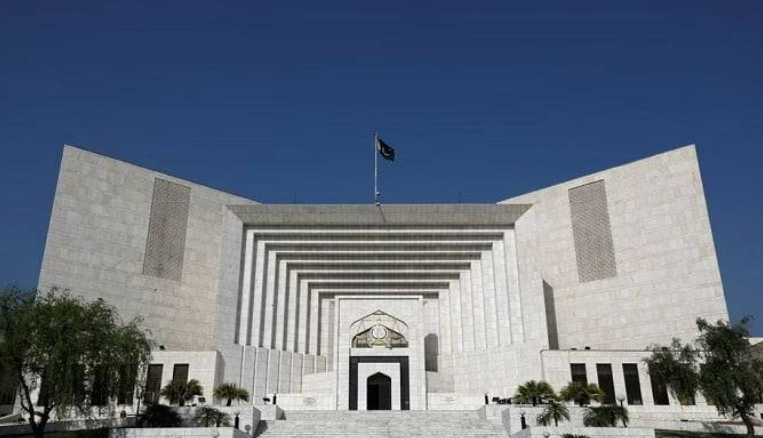Islamabad (Web Desk): Justice Jamal Khan Mandokhail emphasized that the Army Act is intended solely for military personnel, and he stressed the importance of safeguarding the fundamental rights of army officers.
His remarks came during the hearing of the case regarding military trials of civilians for their alleged involvement in the May 9, 2023, riots.
A seven-member constitutional bench, led by Justice Aminuddin Khan, and comprising Justice Jamal Khan Mandokhail, Justice Muhammad Ali Mazhar, Justice Hasan Azhar Rizvi, Justice Musarrat Hilali, Justice Naeem Akhtar Afghan, and Justice Shahid Bilal Hassan heard the case regarding military courts.
During the proceedings, Justice Mandokhail questioned the procedures used in military trials, particularly the qualifications of the officers who preside over these cases.
He raised concerns about whether commanding officers, who may lack sufficient experience in legal matters, are fit to impose death sentences.
Justice Musarrat Hilali shared similar concerns, pointing out that the officer conducting the trial does not issue the final verdict. Instead, it is passed on to a senior officer who did not witness the trial, prompting her to question how someone who has not been involved in the process can fairly decide the outcome.
Justice Mandokhail also reflected on his own long career, remarking that despite 34 years in the field, he still feels that there is much to learn, highlighting his doubts about the competency of military officers overseeing trials.
In response, Defence Ministry lawyer Khawaja Haris assured the court that he would clarify the trial procedures in greater detail in his next set of arguments.
The judges were also concerned about the rights of military personnel within the judicial system.
Justice Mandokhail noted that, while the Army Act applies exclusively to the military, it remains crucial to ensure that even soldiers are guaranteed basic rights and justice.
Justice Hilali pressed for further clarification on who writes the decisions in military trials, as the verdict is typically determined by a commanding officer who was not involved in the hearing itself.
Lawyer Khawaja Haris maintained that decisions are crafted with help from the Judge Advocate General (JAG) branch.
Justice Naeem Akhtar Afghan offered a different perspective, suggesting that military courts share similarities with civilian courts, such as allowing defendants to choose their own legal representation.
He noted that, despite differences in procedure, there are elements that align with civilian trials.
During the hearing, Additional Attorney General (AAG) Aamir Rehman informed the constitutional bench that around 5,000 individuals were implicated in the events of May 9, with evidence linking 105 of them to incidents being referred to military courts for trial.
The hearing was adjourned, with the Ministry of Defence's lawyer scheduled to continue his arguments on January 13.
The May 9 riots, which followed the arrest of PTI leader Imran Khan, led to violent protests and attacks on state institutions, including the General Headquarters (GHQ) in Rawalpindi.
Military courts had already delivered verdicts for some of the accused, but following a ruling from the Supreme Court in October 2023, it was declared that such civilian trials in military courts were unconstitutional.
The court ordered that the cases of 103 suspects be moved to civilian courts. However, in December, the Supreme Court’s verdict was temporarily suspended, leading to confusion and controversy over the handling of these cases.
On December 13, the SC, in a decision by its constitutional bench, gave conditional permission for military courts to announce the reserved verdicts of 85 civilians who were still in custody for their alleged involvement in the May 9, 2023 riots.
Less than a week later, on December 21, military courts handed down sentences to 25 individuals, ranging from two to ten years in prison, for their role in attacking military installations during the May 9 mayhem. Following this, another 60 individuals were convicted a week later and sentenced to similar terms for their involvement in the nationwide disturbances that occurred during the riots.
On January 2, mercy petitions filed on behalf of 19 of the convicted individuals had been accepted on humanitarian grounds.


